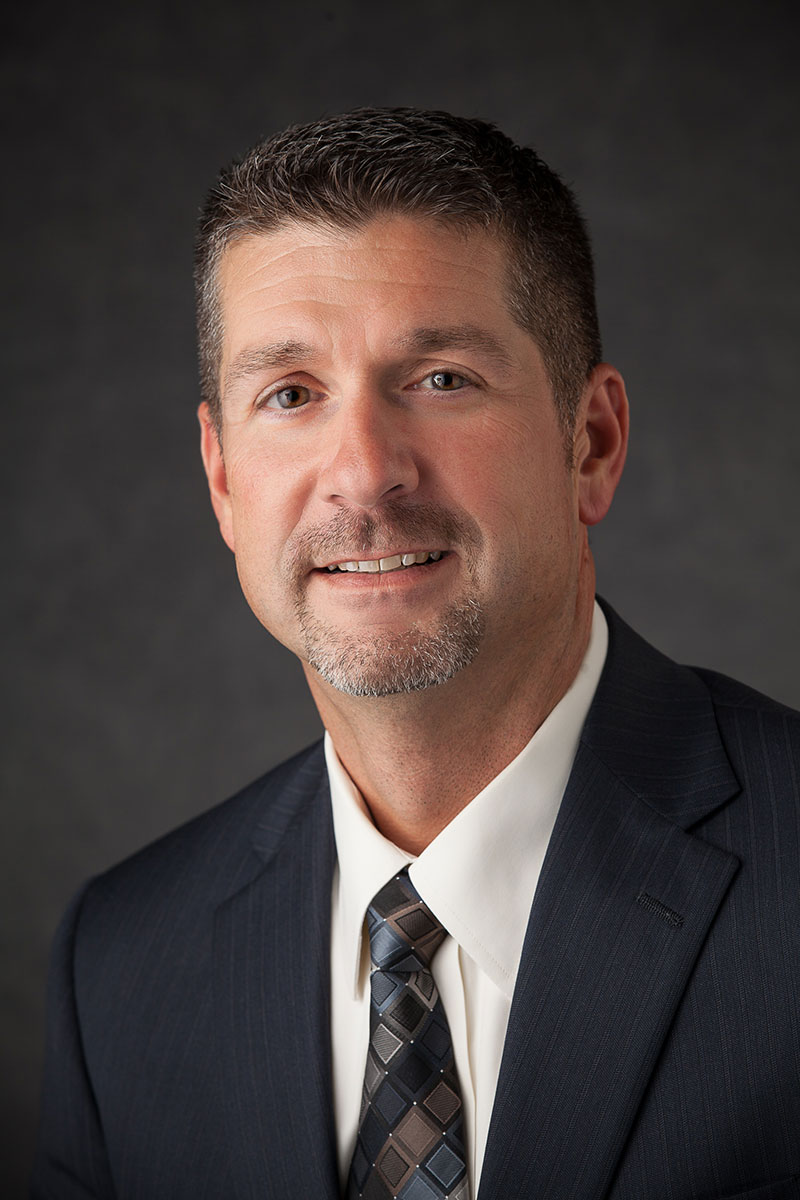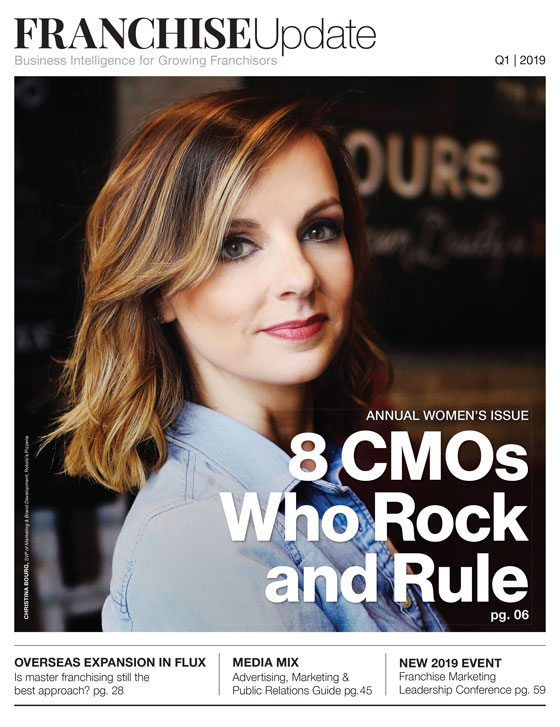Quality Care: Culture and Values Come First for Brian Petranick

Brian Petranick is president and CEO of RiseMark Brands, parent company of Right at Home and Right at Home International, a global in-home senior care franchise with more than 650 locations in seven countries; and of IKOR International, acquired in 2014, that specializes in life care management for seniors and those with disabilities.
His job, he says, is to focus on the future of the three brands and ensure they're in a position to continue to grow, provide quality services, and meet the needs of their clients in the ever-changing health care sector.
Sounds like a tall order, but not to Petranick, who has been working in health care and business development for more than three decades. He began as an 18-year-old hospital admissions worker and paramedic. At 19, he launched his first entrepreneurial venture: a company that specialized in health care education, training, and emergency preparedness. Early on, he saw firsthand the importance and value of patients aging and recovering from illness or injury in their homes. That's when he changed his focus to in-home care and medical staffing.
In 2000, his experience in business development and health care led Petranick to join Allen Hager, the founder of Right at Home. Today, under his leadership, and with Hager as executive chairman, the organization is one of the largest providers of private in-home care services in the world. He continually navigates the company's growth and its brands through the increasingly complex global health care system.
Petranick's passion for senior care has led him to work with the Home Care Association of America (HCAOA) and the Home Care 100 Leadership Conference. He also taught entrepreneurship and business development for nearly a decade at the University of Nebraska.
"I am not a micromanager," he says. "I am a big picture, strategic thinker and surround myself with smart, passionate people who offset my weaknesses and enhance my strengths." He believes this management style builds trust and passion in the corporate office and with franchisees, customers, and partners. The result, he says, is a management team in sync on strategic direction, priorities, culture, and values.
Petranick says RiseMark's three brands measure their success by the lives they touch and affect every day. Looking ahead, he says he wants to see the brands take an even more innovative position in the industry on programs and services surrounding all aspects of aging successfully in the home.
 Name: Brian Petranick
Name: Brian Petranick
Title: CEO, President
Company: RiseMark Brands
Brands/Units: Right at Home, 650 globally; IKOR, 30 in the U.S.
Age: 51
Years in franchising: 19
Years in current position: 8.5
Leadership
What is your role as CEO?
My primary role is to focus on the future of our organizations and to ensure we are in a position to continue our growth, provide quality services, and meet the needs of our clients in the ever-changing health care environment. I'm also keenly focused on ensuring that our organization evolves our internal structure to provide the best foundation for our franchise system.
Describe your leadership style.
This is a difficult question. I've been with the company since we began expanding through franchising, so my style has had to continually evolve. In the very early days, there were only a few of us at the corporate office. Today, we are approaching 100 employees. However, I have never strayed from my belief in open, honest leadership. I want everyone to understand where we are going and what it is going to take for us to get there. Change is hard--no reason to make it harder by keeping your team in the dark.
What has inspired your leadership style?
A combination of different influences. My father had a very successful and long career as a high-ranking military officer. He led thousands of people globally. I was fortunate to be around some of his colleagues when I was younger, and they talked about what a great leader he was. That certainly had an influence, listening to what they were saying about him, his style, and how respected he was for how he carried himself in and outside of work. I have also been influenced by co-workers, supervisors, and other leaders I have been around over the years. I certainly learned a lot of good behaviors, but I also learned what not to do, which may be more important. Last, a number of classes, seminars, assessment tools, feedback loops, and other factors have influenced my style.
What is your biggest leadership challenge?
Balancing the significant demands of the position. Trying to make myself available to all the important people in my day (employees, franchisees, strategic partners, board members, industry contacts, etc.) and still find time to "work on" the business. It's imperative to find time to read, research, and frankly, just think.
How do you transmit culture from your office to front-line employees?
That has to start at the top. Culture must be understood, defined, and communicated. It needs to be a focus area every day. We talk about our culture all the time. It is infused in every aspect of our company. We have a whole session on our culture during discovery day and again during training. It's reinforced at staff meetings, talked about with potential new employees throughout the selection process, and one of the yardsticks we use when making tough decisions. In other words, we ask ourselves, Are we living our values and our culture?
Where is the best place to prepare for leadership: an MBA school or OTJ?
I think both are important. There are certainly the academics of leadership that are important and that help build a foundation. However, leadership is really honed in the work environment. That is where the execution of strategy and its nuances can be learned, adjusted, and evolved over a career.
Are tough decisions best taken by one person?
How do you make decisions? I really like to gather as much information as possible before I make tough decisions. That can come from colleagues, team members, outside sources, etc. Sometimes there may not be time to gather a tremendous amount of information before making a decision. I have always had a good "gut," which is really just being good at reading all of the information and making the appropriate decision at the appropriate time. Ultimately, one person has to own the tough decision, but seeking out information and input from others is always recommended.
Do you want to be liked or respected?
Yes. Who ultimately wouldn't want both? However, the role requires more emphasis on being respected than on being liked.
Advice to CEO wannabes:
Be a student of your business. Try to understand as much of its key drivers as possible. Be a student of all business models. Learn from outside your organization and across all industries. If you are in the service sector, learn about retail, foodservice, and production. If you are in franchising, learn about corporate models. Last, be patient and thoughtful with your career choices. The path to the C-suite is not always linear.
Management
Describe your management style.
The one thing I can definitely say is that I am not a micromanager. I am a big picture, strategic thinker and not particularly detail-oriented. Therefore, I really work to surround myself with smart, passionate people who offset my weaknesses and enhance my strengths.
What do you think makes up a good management team?
Trust. If you have a team that trusts each other, it is much easier to collaborate, provide meaningful feedback, disagree, brainstorm, and evolve. Trust also makes it much easier to align strategic and operational goals. One additional factor is passion. I really want to be surrounded by people who are passionate about our business, our franchisees, our customers, and our partners.
How does your management team help you lead?
We are all very much in sync on our strategic direction, our priorities, our culture, and our values. They enforce that messaging throughout the organization and franchise system.
Favorite management gurus: Do you read management books?
Yes, I pretty much read only business books. Sounds horrible to some people, but it's what really interests me. As far as my favorite management gurus, I tend to find something valuable from every person and every book. I never get too excited about the new "best seller" or new "game changer" book or author. Having said that, Peter Drucker is to management theory what William Shakespeare is to literature. So I read a lot of Peter Drucker.
What makes you say "Yes, now that's why I do what I do!"?
The mission of our organization is "to improve the quality of life for those we serve." We are all here because of the impact we have on the lives of our clients, their families, our care professionals, our franchisees, and the communities we serve.
Personal
What time do you like to be at your desk?
Early. I am definitely a morning person. My most focused and productive time of the day is early in the morning, and it stays that way leading up to lunch. I prefer to schedule most meetings and phone calls for the afternoon to protect that valuable morning time.
Exercise in the morning? Wine with lunch?
Exercise morning, noon, and night. I am a little bit of a fitness fanatic, so I need to be open to work out whenever the opportunity presents. I will always choose to do some sort of workout over wine with lunch.
Do you socialize with your team after work/outside of the office?
Occasionally, but not very often. I love my team and have no issues hanging out with them, but I am sure some would prefer that the CEO not be around (even though I am super fun). In addition, between travel, other competing priorities, and trying to spend as much time as possible with family, there aren't very many opportunities.
Last two books read:
Grit by Angela Duckworth, and currently re-reading Thriving on Chaos by Tom Peters.
What technology do you take on the road?
iPhone, iPad, and laptop.
How do you relax/balance life and work?
Working out is how I relax. Making sure there is life balance takes effort. I can be a bit of a workaholic by choice, so I need to give myself permission to just walk away from work and not feel guilty. I also have to remind myself that I need time away to recharge and refresh. I live on a small acreage, so having simple weekend projects like yard work, planting trees, and similar is truly cathartic and really sets me up for a more productive week at work.
Favorite vacation destinations?
Table Rock Lake and any number of other places I have been with a beach and pool.
Favorite occasions to send employees notes:
Personal celebrations/challenges such as the birth of a child, birthdays, passing of a family member, etc. I also send notes recognizing great efforts, or when someone demonstrates behaviors that live out our mission or values.
Bottom Line
What are your long-term goals for the company?
To take an even more innovative position in the industry on programs and services surrounding all aspects of aging successfully in the home environment.
Are there any trends in the industry that you foresee having an impact on your brand?
Absolutely. Significant changes in the demographics of the country and world are going to have a meaningful and permanent impact on several of our critical key business drivers. In addition, the U.S. health care system (and other country-specific health care systems) are fundamentally being altered to adjust to the shifting demographics. This is requiring us to think differently about the organization we are today and the organization we will need to be in the future.
How has the economy changed your goals for your company?
Our business is not typically a luxury for most of our clients and families. While there are aspects of the economy that have an impact on some of our key drivers, generally we are not significantly affected by economic changes.
How do you measure success?
We certainly measure success by the lives we touch and affect every day. We also measure success by ensuring that we are moving the needle on several key focus areas throughout the year. I have a saying that I have borrowed (and changed a little bit) from Bill Gates: "We overestimate what we can do in a month and underestimate what we can accomplish in a year." Our whole organization hears me say that frequently. We keep that in mind and have never been disappointed when we look back over a year and take an inventory on what we have been able to accomplish. We could be disappointed if we did that each month. Keeping that perspective is really critical.
What has been your greatest success?
I don't think I have lived any of them yet. One will involve my kids growing up into happy, productive adults with families. Another will be the day when I leave the organization and know that our mission, values, and vision will continue long after my departure.
Any regrets?
Not really. I try not to put too much energy into regrets and choose instead to focus on tomorrow and the days, weeks, and years that follow.
What can we expect from your company in the next 12 to 18 months?
More innovation, more growth, and more lives touched.
Share this Feature
Recommended Reading:
FRANCHISE TOPICS
- Multi-Unit Franchising
- Get Started in Franchising
- Franchise Growth
- Franchise Operations
- Open New Units
- Franchise Leadership
- Franchise Marketing
- Technology
- Franchise Law
- Franchise Awards
- Franchise Rankings
- Franchise Trends
- Franchise Development
- Featured Franchise Stories
FEATURED IN

Franchise Update Magazine: Issue 1, 2019








 The franchise listed above are not related to or endorsed by Franchise Update or Franchise Update Media Group. We are not engaged in, supporting, or endorsing any specific franchise, business opportunity, company or individual. No statement in this site is to be construed as a recommendation. We encourage prospective franchise buyers to perform extensive due diligence when considering a franchise opportunity.
The franchise listed above are not related to or endorsed by Franchise Update or Franchise Update Media Group. We are not engaged in, supporting, or endorsing any specific franchise, business opportunity, company or individual. No statement in this site is to be construed as a recommendation. We encourage prospective franchise buyers to perform extensive due diligence when considering a franchise opportunity.